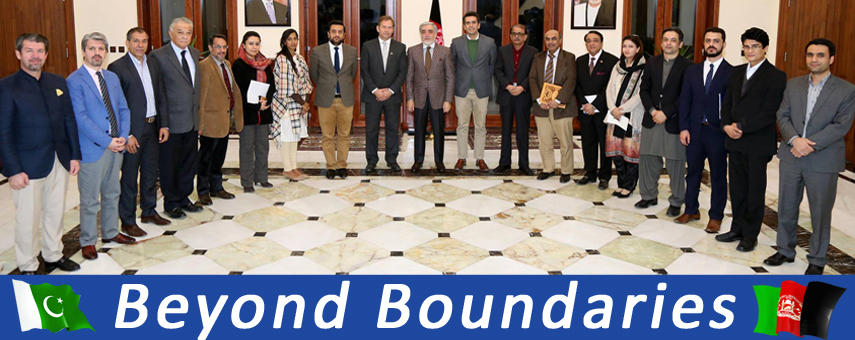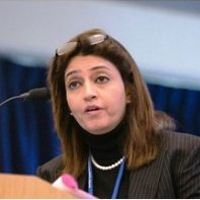Pak-Afghan Relations: Need for a Reset
By Dr.Huma Baqai
Pakistan-Afghanistan relations have become extremely complex. The issues include a disputed border – officially called the Durand Line -, an increasing number of border skirmishes, the ambiguity surrounding respective positions on Taliban and the peace talks with them, lingering transit trade talks, water, and India-Pakistan rivalry being played out on the Afghan soil – dubbed as the Pak-India proxy war by the British historian William Dalrymple. The latest addition to the complex matrix is China’s unusual interest in improving the security situation in Afghanistan.
Afghanistan’s enduring security crises is a source of concern for the international community but it means a lot more to Pakistan and its economic future. But the traditional trust deficit that exists between the two countries is very pervasive on the Afghan side. The broad overarching consensus in Kabul today is that Pakistan continues to play a role of an enabler of violence in Afghanistan.
The recent desire, willingness and commitment shown by Pakistan to facilitate the peace dialogue between the Afghan Government and the Taliban is also viewed with a lot of skepticism in Afghanistan. Very few in Kabul see it through the prism of Pakistan’s desire to bring peace in Afghanistan, largely it is viewed as a ploy by Pakistan to continue to manipulate the politics of Afghanistan and keep India out.
Since 2014-2015, Pakistan has reemerged in the calculation of the movers and shakers of the world as the key to peace in Afghanistan. United States, China and even Russia look at Pakistan to deliver Taliban to the Peace Process. This has come after the realization that nearly a trillion dollar worth of US socio-economic and security investment in that country has failed to conclusively defeat the Taliban insurgency which remains a threat across the country.
On March 12, 2014, US General Joseph Dunford, then Commander of ISAF and US Forces-Afghanistan, told the Senate Armed Services Committee that “If we leave at the end of 2014, the Afghan security forces will begin to deteriorate. The security environment will begin to deteriorate, and I think the only debate is the pace of that deterioration.” Almost all foreign Forces left at the end of 2014, leaving only 12,000 administrators, trainers and US Special Forces door-bashing killers who have done more than any other element to set ordinary Afghans against America. As forecasted by General Dunford, the “security environment” is deteriorating day by day. So, blaming Pakistan form Afghan side for the prevailing beleaguered security situation and violence is a very myopic view of things. The fighting winter and a very tough spring offensive was also the result of the failure of the Afghan security infrastructure to respond to the emerging ground realities of less foreign forces and operation in Pakistan.
Peace Process and Talks with the Taliban:
The conversation that the author had with Afghan civil society representatives, the CEO of the Unity Government Dr. Abdulla Abdullah and former President Karzai, converged on a single view that essentially thrives on a sense of betrayal; Pakistan cheated Afghanistan by not revealing the fact that Mullah Omar is dead and that Pakistani establishment knew about it, is the overriding view.
They also insist that before the Murree Peace Process got underway on July 7, 2015, assurance was sought that the group representing the Taliban in Murree have Mullah Omar’s blessings and the same was given from the highest level.
In fact interestingly, Dr. Abdullah Abdullah ridicules President Ghani for thanking a dead man for coming to the negotiation table. President Ghani had taken a huge risk by initiating the peace process with the Taliban through Pakistan and apparently it back fired.
Ex-President Karzai, now is very vocal about the fact that US, UK and Pakistan are bed fellows and views Pakistan as an N.G.O of the United States that works for the promotion of the US interests in Afghanistan, which is not in the interests of Afghanistan.
The spike in violence after the breakdown of talks is also seen in that light. Pakistan’s stance may continue to be that the leak of Mullah Omer’s death was a conspiracy of the Afghan Intelligence Agency. The point remains that the Afghans showcase it as another blow to the bilateral trust.
The Afghans may want to talk to the Taliban for the lack of any other option and dwindling interest of the west to continue to bail them out but are very annoyed at the existence of the “Quetta Shura” and several Afghan commanders in Pakistan. They see them as tools which Pakistan continues to use to exercise influence and control within Afghanistan.
The overall security situation in Afghanistan deteriorated in the second half of the 2015. There is a marked increase in insurgent attacks and casualties. The Taliban have remained active in their traditional strongholds, like Helmand and Kandahar in the south and Logar and Wardak in the east. Their brief capture of Kunduz is a clear indicator that they remain a powerful force both militarily and politically.
Indian factor:
The statement of the Indian Ambassador in Afghanistan Mr. Amar Sinha right after the meeting between Prime Minister Nawaz Sharif and President Ghani in Paris offers a curious case study; Pakistan is working towards giving leadership space to the Haqqani Network, which is on the verge of getting international recognition as the de facto Taliban leader, Mr Sinha implied.
The statements by the Indian Ambassador on relations between Pakistan and Afghanistan find very prominent space in Afghan newspapers. The fact that an envoy gives regular comments and advice on how the relationship of the two countries (Pakistan-Afghanistan) should progress is quite instructive. Such posturing rides on the back of the big Indian reconstruction and development efforts in Afghanistan. By implication, India’s growing presence and influence in Afghanistan contributes to Pakistan’s fears of encirclement. The establishment of first overseas air base by India in nearby Farkhor, Tajikistan has further aggravated such fears. (Gundu & Schaffer 2008).
One can discern from conversations in Kabul a very systematic close synergy of Indo-Afghan thoughts on the region and on Pakistan.
Zarb-e-Azb:
Interestingly, the Afghan view on the Zarb-e-Azb Operation against TTP and other militants in North Waziristan is quite puzzling; the Afghan President told the Heart of Asia Conference at Islamabad on December 9 that the operation against the Tehreek-e-Taliban Pakistan had created additional security challenges for the country. He also spoke of Afghanistan hosting 350,000 to 500,000, Pakistani refugees as a result of military operation resulting in civilian displacement. That apart, Ghani is often seen as pro-Pakistan and severely criticized for his “soft position on Pakistan.”
Although Pakistan is crucial to Afghanistan, be it peace and security or regional connectivity it has failed on both fronts. Afghanistan seems more inclined towards Iran and India for the same – this is at least the impression one gets while in Kabul.
The Media in Afghanistan is also very pro-India and skeptical of Pakistan. A statement by former interior minister and Senator Rehman Malik that “India is main hurdle in normalization of Pakistan-Afghanistan relations”, are not received well in Afghanistan. They are construed as interference in Afghanistan’s internal affairs and former president Hamid Karzai even goes to the extent of saying that the country is all set to go under the thumb of Pakistan (if the talks with the Taliban succeeded).
Trust Deficit:
One can gather from interlocutors in Kabul that Pakistan apparently failed in convincing Afghans of its sincerity in the counter-terrorism war. Not many believe in the paradigm shift that has taken place in Pakistan – the shift from Geo-Politics to Geo-Economics. That is why it seems that Pakistani leadership and diplomats shall have to
be more pragmatic and innovative in its approach towards Pakistan-Afghanistan relations.
A revisit of the Pak- Afghan policy is the need of the hour and the policy of harbouring each other’s enemies must end. The irreconcilable Afghan Taliban are seen as enemies in Afghanistan and should be treated similarly by Pakistan. The ambiguity accompanying the Pakistani policy on Taliban has allowed India to acquire strategic political space in Afghanistan which it blatantly exploits against Pakistan.
The sustainable way forward for Afghanistan and Pakistan is to address each other’s sensitivities and sensibilities without outside interference. The desire of some regional and extra-regional powers to pitch Pakistan and Afghanistan against each other to achieve their vested interests in the region should be identified, exposed and defeated. Pakistan needs to pursue peace with dignity both with India and Afghanistan for its own and for the sake of the region.
Article contributed by Dr. Huma Baqai, Associate Professor, Chairperson, Department of Social Sciences, IBA Karachi, also a distinguished Member of the Beyond Boundaries Pakistan Regional Civil Society Group


